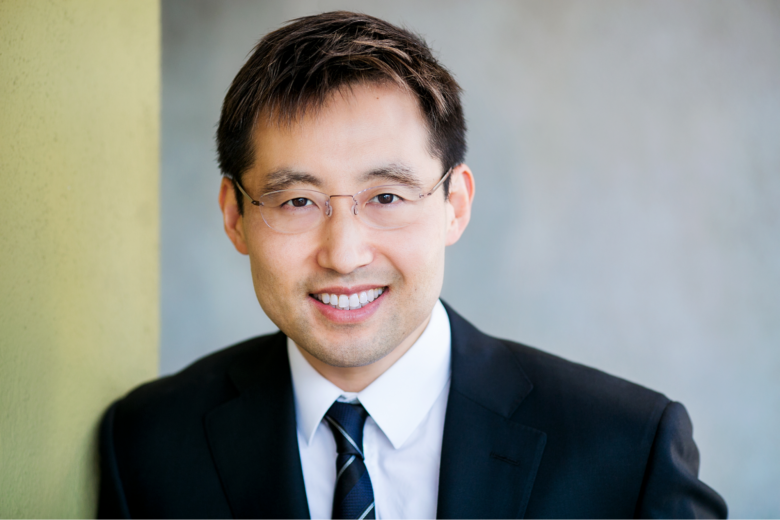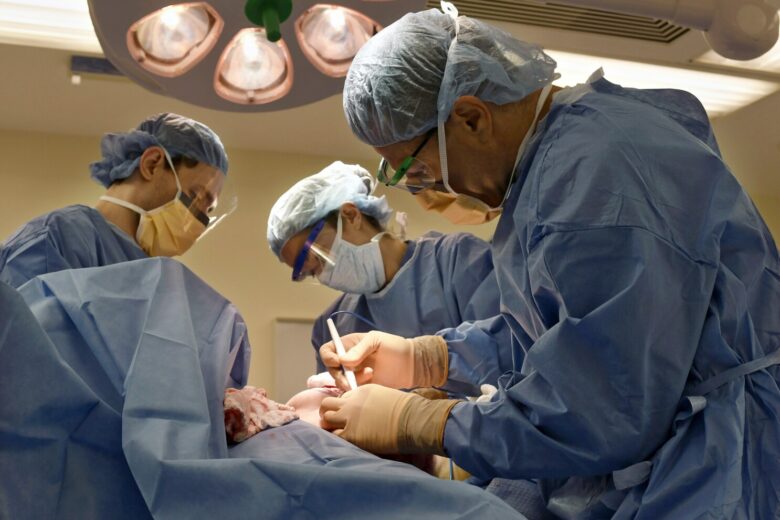Gender-affirming surgeries can play a vital role in some transgender people’s journeys. Deciding to undergo surgery takes courage and determination — it’s about becoming your true self, inside and out.

Any surgery involves risks and challenges, but for those seeking physical changes to match their gender identity, the rewards can be life-changing. Surgeons aim to help trans folks feel comfortable and whole in their bodies, and while they aren’t for everyone, these procedures allow many people to live as their authentic selves.
However, this path is not without its challenges, and the necessity of multiple, lengthy surgeries looms large on the horizon. These surgeries hold the promise of profound physical change, but also raise a critical concern: the potential cognitive risks associated with extended exposure to general anesthesia. In the pursuit of authenticity and self-affirmation, it becomes imperative to consider not only the physical aspects of transformation, but also the preservation of cognitive well-being.
Enter awake surgery, a groundbreaking alternative that is gaining prominence in the realm of gender-affirming procedures. This innovative approach grants surgeons the precious gift of time — time for precision, time for ultra-precision techniques, and, most importantly, time to minimize the risk of cognitive impairment.
“Awake surgery’s emphasis on precision not only results in minimal bleeding and reduced postoperative pain,” shares Dr. Kenneth Kim, a board-certified plastic and reconstructive surgeon in Los Angeles, “but it also leads to superior appearance outcomes, ensuring that the physical transformation aligns with the individual’s vision.”
Contents
The challenges of gender-affirming surgeries

Source: apnews.com
In the pursuit of genuine self-expression and identity, individuals undergoing gender-affirming surgeries embark on a profound and often multifaceted journey. These surgical procedures play an essential role in aligning their physical characteristics with their deeply held gender identity.
Yet, the path to self-realization is not without its challenges, and understanding these hurdles is crucial in the context of gender-affirming surgeries.
The necessity of multiple and lengthy surgeries for gender transition
Gender-affirming surgeries are not typically singular events, but rather a series of meticulously planned procedures designed to bring about comprehensive physical alignment with an individual’s gender identity. These surgeries encompass various aspects of transformation, from chest or breast augmentation to facial reconstruction and genital procedures.
The complexity of these surgeries often requires a staged approach, each procedure building upon the previous one to achieve the desired outcome. As the surgical journey unfolds, the question of how to balance the imperative for physical transformation with the need to safeguard cognitive well-being becomes increasingly pertinent.
Highlighting the potential cognitive risks associated with general anesthesia during long surgeries

Source: alzdiscovery.org
Being put under anesthesia allows for all kinds of lifesaving operations — it’s an essential part of surgery — but studies suggest there can be some downsides to being “under” for too long. General or IV sedation anesthesia lasting more than 2 hours have shown to cause neuronal cell death at the hippocampus, which is the memory forming part of the brain. People thought that patients having trouble with their memory and thinking skills immediately after waking up from surgery was only tempory. However, reseach have shown that there are permanent negative effects on memory as brain cells at the hippocampus undergo cell death and impairs patients to form new memories – leading to early dementia.
“This type of amnesia can hinder the ability to retain new information,” notes Dr. Kim, “potentially affecting an individual’s capacity to recall essential postoperative instructions or follow-up appointments. This can be devastating for the patient long-term.”
Doctors are still trying to understand why this happens and if certain patients are more vulnerable. It’s a reminder that anesthesia is incredibly useful, but not without risks. The benefits usually far outweigh any potential side effects, but it highlights the importance of only using as much anesthesia as needed, and monitoring patients closely afterward. The goal is to allow surgery while protecting the brain as much as possible.
Understanding the cognitive risks associated with general anesthesia during lengthy surgeries highlights the importance of considering both physical transformation and cognitive well-being in the context of gender-affirming surgeries. It calls for a reevaluation of the traditional approach to anesthesia in these procedures and the exploration of safer alternatives, such as awake surgery.
Emphasizing the importance of considering both physical and cognitive well-being

Source: bestpossibleselfinstitute.com
Gender-affirming surgeries promise to empower individuals to live authentically and align their physical selves with their gender identity. However, it is equally vital to ensure that this transformative journey does not compromise cognitive well-being. Balancing the imperative for physical change with the need to preserve memory and cognitive function requires a nuanced approach.
The challenges of gender-affirming surgeries transcend the operating room — they extend into the realm of holistic well-being. It is not merely about changing appearances, but also about nurturing the cognitive health and long-term quality of life of individuals who embark on this journey.
As we navigate the intricate landscape of gender-affirming procedures, we must seek solutions that offer both physical transformation and cognitive preservation. Awake surgery emerges as a promising alternative, allowing individuals to embrace their true selves without compromising their mental faculties.
The benefits of awake surgery for gender-affirming surgeries

Source: city-journal.org
One of the most prominent benefits of awake surgery is the precision it allows. Unlike traditional surgeries conducted under general anesthesia, awake surgery permits patients to remain conscious and alert while their surgical site is anesthetized. This approach offers surgeons the invaluable gift of time, eliminating the constraints imposed by the time-limited nature of general anesthesia.
With this liberation, surgeons can meticulously focus on every intricate aspect of the procedure. In the context of gender-affirming surgeries, where even the smallest details carry profound significance, this precision becomes paramount. It empowers surgeons to allocate the necessary time required for intricate facial reconstruction, breast augmentation, or other transformative procedures, enhancing both the quality of the surgical outcome and the overall well-being of the patient.
Awake surgery requires surgeons to be incredibly precise as they use specialized techniques to make microscopic changes and tweaks. This precision is especially important for gender-affirming surgeries. Since the goal isn’t just a different look — it’s aligning the outside with someone’s inner identity — every detail matters.
Being awake allows for that fine-tuning in real-time, as patients can provide feedback during the procedure to get the results just right, meaning there is less room for mistakes compared to being under full anesthesia. For those seeking a transformation to match their true self, awake surgery offers that gift of precision because the surgeon can take all the time needed to craft the nuanced changes that help patients feel whole. It’s meticulous work, but for many, the rewards are worth it.
“During awake surgery,” Dr. Kim explains, “surgeons can concentrate on sculpting the desired facial contours, refining chest or breast proportions, or achieving specific outcomes that resonate deeply with the individual’s authentic self.”
Beyond precision, awake surgery reduces intraoperative bleeding, leading to a more comfortable recovery. The absence of physiological changes induced by general anesthesia results in less tissue trauma, translating to diminished post-operative pain. This is particularly significant for individuals undergoing gender-affirming surgeries, as they experience a smoother path to recovery, enabling them to swiftly reintegrate into their daily lives and routines.
Moreover, awake surgery facilitates a faster recovery time. “Not only is it safer long term, it’s better for the patient’s overall recovery time,” shares Dr. Kim. “Since they’re not undergoing general anesthesia, when they wake up they’re not bombarded with pain.”
This ability to return to daily activities sooner and with greater ease holds immense value for those navigating the multifaceted challenges of gender-affirming surgeries. It not only lightens the load on healthcare resources, but also enhances overall patient satisfaction and contributes to a more seamless transition process.
The importance of surgeon expertise

Source: baoms.org.uk
“The ability to perform an awake surgery successfully requires significant precision,” Dr. Kim points out. “It requires a meticulousness not found in surgeries performed under general anesthesia.”
Surgeons performing awake procedures have specialized expertise from extensive training. They appreciate the complexity and deeply personal nature of gender-affirming surgeries. These operations involve more than medical changes — they help patients actualize their identity and self-expression — meaning the surgeon has an important duty to safeguard both the physical and emotional wellbeing of the patient.
Avoiding general anesthesia reduces cognitive risks, but it’s the surgeon’s skill and care that ensures a smooth, emotionally supportive experience. Qualified surgeons prioritize open communication and empathy to create an environment where patients feel safe voicing desires, worries, and anxieties.
As such, mutual understanding is key. Surgeons aim to fully understand each patient’s motivations and goals, and help them through every step of the transition process. It’s about working together to achieve results that help patients feel wholly themselves.
Gender-affirming surgeries are more than physical procedures — they are milestones in the journey toward self-discovery and authenticity. Awake surgery redefines the path, offering precision, aesthetics, and cognitive preservation.
As individuals navigate this transformative journey, awake surgery stands as a beacon of hope, illuminating a path toward living authentically, embracing one’s true self, and affirming a profound sense of identity and belonging.
